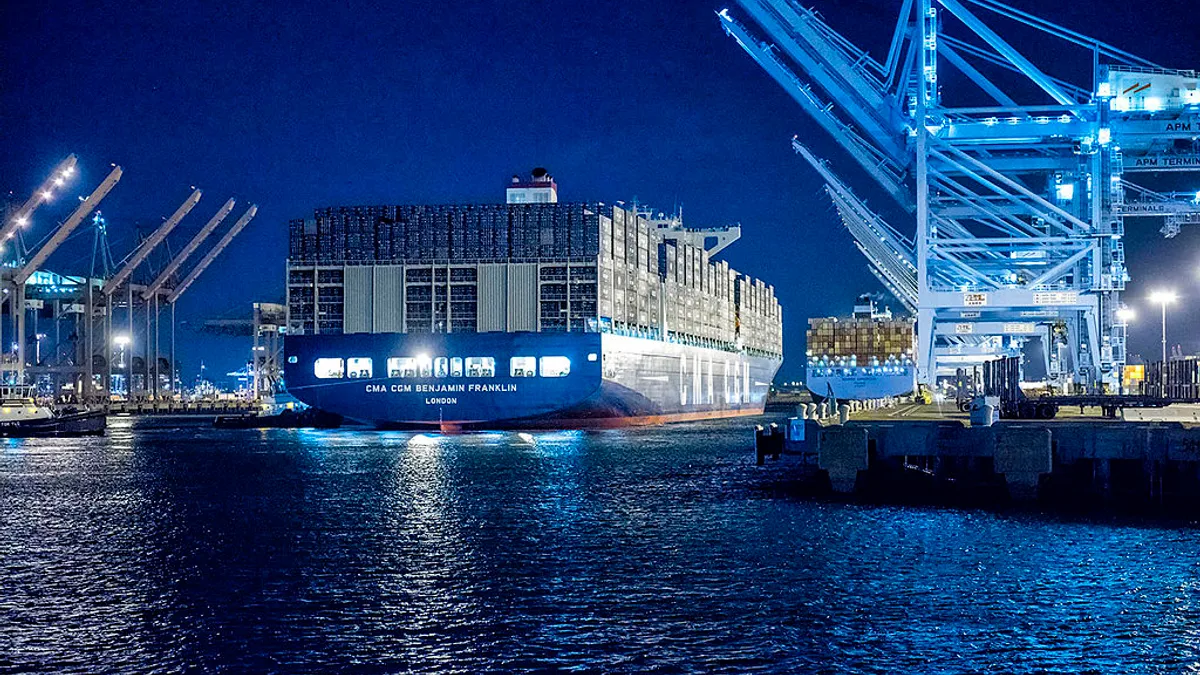Dive Brief:
- CMA CGM has released a set of tools and services, called "Delay in Transit," to help shippers prioritize and store shipments during the coronavirus pandemic, according to a press release from the carrier.
- The carrier will provide storage for shippers' containers until they're ready to be received at the location listed on the bill of lading.
- Meant to reduce warehousing cost, the service is available globally with container storage happening at multiple hubs around the world based on trade lanes.
Dive Insight:
The coronavirus pandemic and the resulting practice of social distancing has disrupted the global ocean shipping environment for shippers and carriers.
Carriers have canceled hundreds of port calls as a result of a drop in demand for shipping, which stems from factory shutdowns in China and then a downturn in consumer demand in Europe and North America. Canceled calls disrupt the flow of containers around the world because ships don't pick up empties to return to foreign ports.
As containers pile up at ports, the entire process for moving them slows down and someone has to pick up the bill for storage.
"Our members were being forced to store these containers at their own cost," Weston LaBar, the CEO of the Harbor Trucking Association, told Supply Chain Dive in an interview last week. "They were being charged detention fees because they couldn't return these containers. And the ocean carriers that were charging them these fees, knowing full well that there was nowhere to return them was then putting the onerous administrative burden back on the trucking company to fight these."
LaBar's association and 79 other organizations sent a letter to White House economic advisor Larry Kudlow and Agriculture Secretary Sonny Perdue asking to "provide guidance for when a detention or demurrage charge can or cannot be fairly imposed," according to a copy of the letter.
CMA CGM is not the first carrier to offer help with storage in this environment. MSC announced its "Suspension of Transit" program last month, which the carrier says will "help avoid high storage costs at ports of discharge."
As products begin moving out of factories in Asia, ports in North America and Europe might not be ready to receive containers. MSC said its program "aims to fulfill the resuming demand for raw materials and finished products from Asia by providing yard storage at major strategic points around the world."













